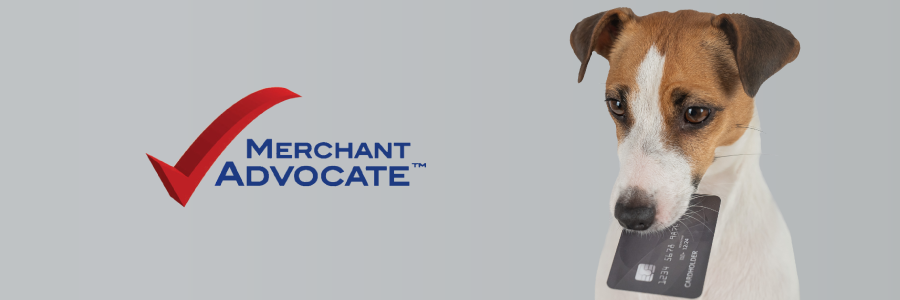
Smart Strategies for Veterinary Practices to Reduce Credit Card Processing Costs

By: Merchant Advocate
Welcome!
We know you are always looking for ways to reduce expenses and increase your bottom line. As costs for credit card processing increase, we can help lower rates and eliminate hidden fees without switching processors and with no upfront cost. We provide a FREE ANALYSIS on the health of your account and will engage your processor to lower your rates, while also eliminating hidden fees and coding errors.

Running a veterinary hospital today involves more than caring for pets and meeting the expectations of their guardians. Practice managers must also navigate rising operational expenses, compliance requirements, and the growing costs of credit card acceptance. Hidden fees, software integration gaps, and outdated payment systems can quietly drain thousands of dollars from a practice every year. But by taking a proactive approach, you can lower these costs while maintaining strong security and client trust.
Ensure Integration with Practice Management Software
Veterinary practices often use customized management systems offered by a host of vendors. If your payment processor doesn’t integrate directly with your software, staff may be entering charges manually. This increases errors, delays reconciliation, and can result in higher processing fees when transactions are misclassified.
For clinics offering recurring billing—such as wellness plans, boarding deposits, or long-term treatment packages—direct integration is even more critical. It reduces declined transactions, improves client communication, and lowers administrative workload.
Prioritize PCI Compliance and Data Security
Payment Card Industry Data Security Standards (PCI DSS) apply to all businesses that handle cardholder data, including veterinary clinics. Falling behind on compliance can trigger monthly non-compliance fees and heighten your exposure to costly breaches.
The overlap between PCI and healthcare privacy rules is especially relevant for veterinary practices that store financial details alongside medical records. Even though veterinary records aren’t regulated by HIPAA, a breach of combined financial and medical data can seriously damage client trust. According to IBM’s 2023 Cost of a Data Breach Report, the average breach in healthcare-related sectors exceeded $10 million, highlighting the importance of strong encryption and maintaining compliance.
Every year, complete your PCI Self-Assessment Questionnaire (SAQ), confirm that your payment system uses tokenization and point-to-point encryption, and train staff to handle card data securely. And be sure you’re updated to PCI DSS 4.0, which was released earlier this year.
Stay Ahead of Chargebacks
Veterinary clinics increasingly offer wellness plans, automatic refills for medications, and monthly preventive care subscriptions. While these programs improve patient compliance, they also open the door to more chargebacks—often from clients who forget about an automated charge, dispute a cancellation policy, or experience a card expiration.
Each chargeback carries both a fee (typically $25–$35) and lost staff time. In order to reduce disputes, be sure to use clear billing descriptors that match your clinic’s name, send reminder notifications before recurring charges, and respond quickly to chargeback notices through your processor’s online portal.
Understand the Risks of Surcharging and Cash Discounts
With credit card processing costs climbing, some veterinary practices may consider passing fees to clients. However, surcharging is not permitted in every state, and strict rules apply. Debit cards cannot be surcharged—even when run “as credit”—and processors may not always disclose this.
Card networks also require veterinary clinics to register surcharge programs, display signage, and disclose the surcharge as a separate line item on receipts. Beyond compliance, consider the optics: pet owners may view surcharges as a financial penalty at an already stressful time.
Audit Contracts and Statements Regularly
Veterinary hospitals are often locked into long-term processing agreements with confusing pricing structures. Even “flat rate” programs can carry hidden markups, particularly for HSA/FSA cards, which are common when clients use pre-tax funds for pet care. Providers also frequently increase rates annually without notice.
For veterinary practices, optimizing payment systems isn’t just about saving money—it’s about protecting client trust, improving staff efficiency, and ensuring compliance with evolving payment security standards. By focusing on integration, PCI compliance, chargeback prevention, careful evaluation of surcharging, and regular contract audits, clinics can control costs while keeping the focus where it belongs: delivering the best care for patients.
Consider having your statement reviewed by a third-party consultant or advisory firm that specializes in veterinary practices. Reducing your credit card processing costs isn’t just a financial decision—it directly affects your patient experience, your staff workflow, and your compliance status. If you’re unsure where to start, consider working with a specialized consultant, like Merchant Advocate, that understands the credit card processing industry and can negotiate better rates, ensure compliance, and help you implement secure, integrated payment workflows without changing processors.
VHMA members are welcome to contact Merchant Advocate via submission form, or by emailing Scott Brandle.
GET YOUR FREE ASSESSMENT NOW:
"*" indicates required fields